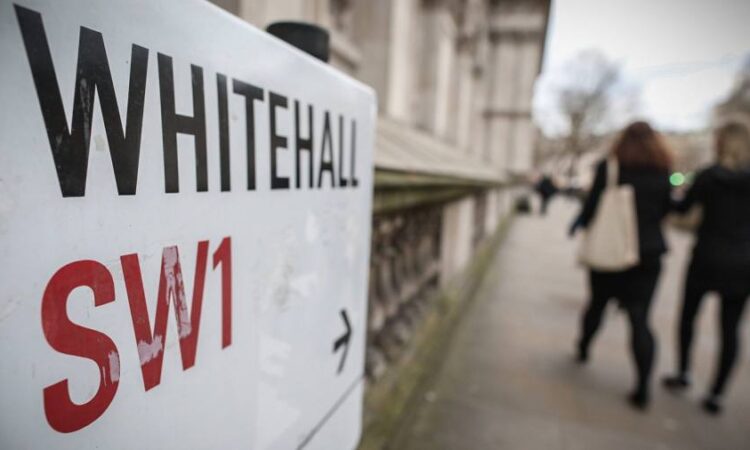
Receive free UK government spending updates
We’ll send you a myFT Daily Digest email rounding up the latest UK government spending news every morning.
The looming squeeze on some government departments to help fund higher pay offers for millions of UK public sector workers will exacerbate the tough choices facing ministers at the next Whitehall spending settlement, economic experts have predicted.
UK prime minister Rishi Sunak announced on Thursday pay rises for public sector workers of between 5 and 7 per cent, accepting in full the recommendations of independent pay review bodies. The offer was backed by education unions, although it fell short of the demands made by the doctors’ union.
Jeremy Hunt, chancellor, said ministers would have to find savings within their own departments of £2bn this year and £3bn the following year.
They will involve a combination of higher fees, underspends, a reprioritisation of some allocations and a shift in capital expenditure to day-to-day spending where approved by the Treasury.
Torsten Bell, chief executive of the Resolution Foundation think-tank, said the chancellor’s demands were “plausible in the short-term” because Whitehall could always cope with delaying some projects.
But he said the need to provide higher pay over time would mean “difficult trade-offs” for ministers, particularly for whoever wins the next election – given that Hunt has pencilled in a tightening of departmental expenditure and a real-terms cut in capital spending beyond 2025.
“The underlying fiscal impact is that it will make the already difficult medium-term post-election arithmetic even more difficult,” he said.
The government has not announced a breakdown of the total £5bn of savings that have to be achieved over two years.
But the Financial Times has established that the Ministry of Defence and Home Office each need to find £1bn, the Department for Education £1.4bn and the Department of Health and Social Care around £1.6-£1.8bn. The Ministry of Justice needs to find tens of millions of pounds.
About 90 per cent of the Home Office target will be achieved through an increase in the visa fees for the migration service.
At least £500mn of the health savings will come from putting up the annual NHS “surcharge” — the fee that some non-European Economic Area people need to pay to use the service — by 66 per cent to £1,035, officials believe.
Meanwhile, Gillian Keegan, education secretary, said that her department had already found the money to pay for teachers’ wage increases — understood to be £1.4bn — through existing underspends. The Ministry of Defence will try to find some of its savings through a temporary freeze on hiring new staff.
But some officials admitted that they had still not “nailed down all the details” on where their savings would come from, contrary to briefings from Downing Street and the Treasury.
One Treasury official said the savings should be achievable because departments had received real-terms increases in spending of 4.8 per cent a year since 2019 — leaving annual departmental spending at £570bn, some £160bn higher in cash terms than four years ago.
The defence, health and education departments all received big increases in last year’s Autumn Statement.
However, the chancellor has proposed day-to-day spending increasing by only 1 per cent in real terms after 2025, meaning — if health and defence are protected — some departments will see real-terms spending cuts.
Ben Zaranko, senior research economist at the Institute for Fiscal Studies think-tank, said it was too early to assess the precise implications of Thursday’s announcement for individual departments.
“I’m not sure anyone knows yet the precise impact of, for example, if the NHS has to absorb an extra £1bn in savings over two years, but something would have to give,” he said.
Zaranko described measures such as departmental underspends as “only a stop-gap”. “To pay these people higher wages permanently you need a permanent solution, which underspends are not.”
He said that although the chancellor had made more money available for departments last year there had been a corresponding “big increase in costs” because of inflation.
“The spending round post-election is going to be a real nightmare for whoever is in Number 10, given there are already big cuts implied for all sorts of areas and a cash freeze on capital spending that they’ll inherit.”






